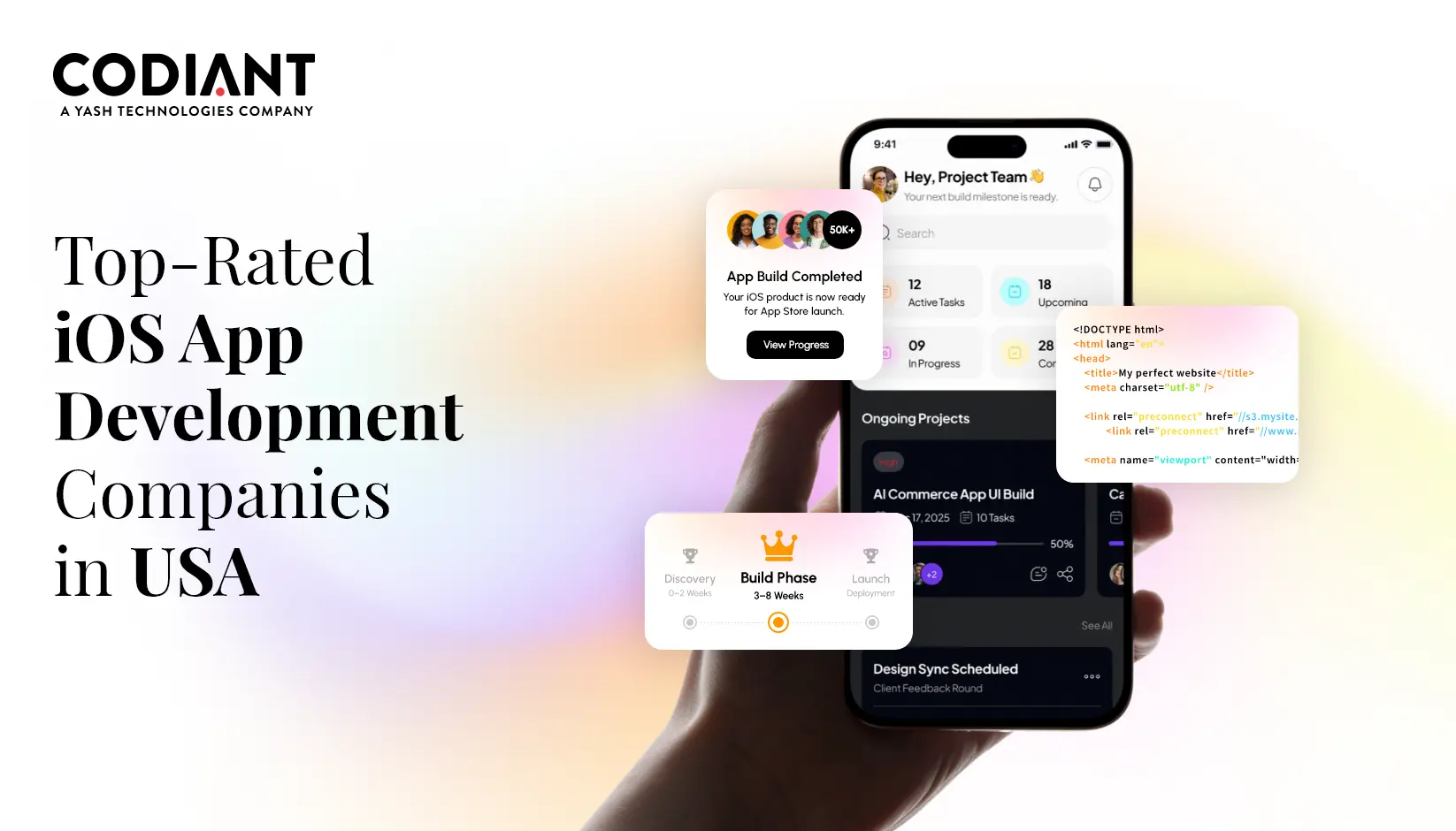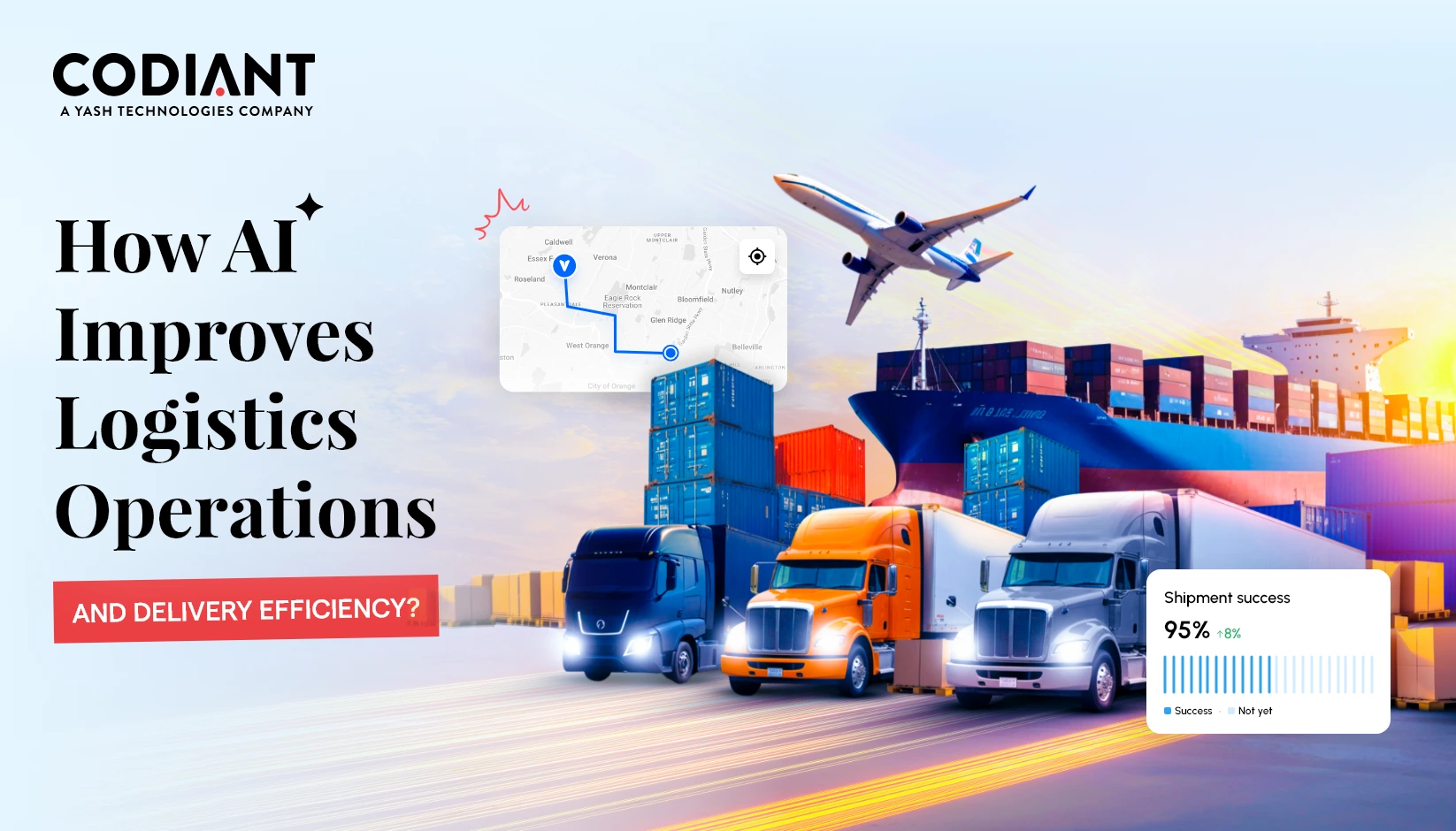With COVID’s different sub-variants continuing to wreak havoc across the world, combined with the fears of life-threatening illness. The healthcare industry is bound to introduce innovations, particularly in the field of customer experience by introducing custom healthcare app development.
From customer-centric m-health app development to hyper-personalized patient-doctor engagement, using AI and predictive analytics technologies, healthcare mobile app development services are gaining momentum in enhancing the end-to-end patient customer journey.
Here, we discuss the top ten healthcare app development trends that will take virtual collaboration between providers and patients to the next level.
Top Healthcare App Development Trends in 2025
As people are getting dependent on technology and becoming active users of mobile applications to access any specific service, maintaining the security to have convenient and quick access to that has become a pressing need.
To make all this possible, advanced technologies infused healthcare mobile applications are playing a vital role in facilitating users i.e. doctors and patients. With this increasing penchant for adhering to secured technologies and compliances. The healthcare industry is turning out to be a great marketplace for entrepreneurs to test the waters and invest in the thriving industry.
If you are also planning for cutting-edge custom healthcare app development, then it is a prerequisite to follow the futuristic approach and market trends to sustain for a longer period in this highly competitive market. So, let’s explore the top 10 trends in the healthcare industry that will significantly impact the industry at large.
- Patient-Generated Health Data Will Set New Record
- Telemedicine Is Here to Stay and Prevail Beyond
- Wearable Integration Will Be Hailed As Ultimate Future Technology
- Artificial Intelligence (AI) Will Be Less Artificial and More Intelligent
- Cloud-Based Technology Will Be a Bedrock for Quick Data Accessibility
- Blockchain Technology Will Drive Better Patient Care
- Augmented and Virtual Reality (AR/VR) Will Have A Greater Influence
- Internet of Technology (IoT) Will Add a New Healthcare Dimension
- Data Security Will Remain In Focus To Prevent Data Breach
- Big Data Will Take Over and Harmonize Precise Treatment
1. Patient-Generated Health Data Will Set New Record
In the traditional model of patient care, hospitals usually face a lot of issues to connect and tracking all the relevant details of patients instantly. In contrast to that, all these struggles get vanished when hospitals integrate their services with telemedicine app development. These apps enable patients to store all the reports, prescriptions, and other health details on the application. Later, the patient can provide all the relevant details to the doctor without any delay and can get instant and accurate prescriptions from the specialists.
Patient-Generated Health Data (PGHD), refers to any medical details generated by patients or their families. It is a combination of a patient’s medical history, personal details, health issues or ailments, lifestyle, allergies, any ongoing or past therapies, and other data – all are self-generated data. The PGHD is quickly becoming a trend in healthcare app development, which represents the new dimensions of the healthcare industry and is functioning very efficiently.
2. Telemedicine Is Here to Stay and Prevail Beyond
The impact of COVID-19 has compelled people to stay indoors. As a result, people are majorly preferring telemedicine consultations over traditional hospital visits unless it is necessary. During this period, people realize the importance of healthcare applications and downloaded the app for round-the-clock medical assistance.
These healthcare mobile applications are quite easy and convenient for a novice to operate and seek medical assistance from professionals, in their comfort zone. Not only patients but even doctors are also getting benefitted from m-health app development. They can assist more patients remotely rather than meeting with patients in person, and can also maintain social-distancing norms.
The healthcare app development trend and usage among people remain in the market because of the numerous benefits it offers. Such as reduction in consultation charges, overall cost reduction in the hospital services and equipment, lesser number of patient visits in hospitals in-person, fewer patient admissions with not-so-severe symptoms, and many others.
These healthcare mobile app services enable real-time patient and doctor interaction, which helps to prevent any medical emergency or any delay in assistance.
3. Wearable Integration Will Be Hailed As Ultimate Future Technology
Custom healthcare app development integrated with wearable devices is the new norm in the fitness industry that helps in analyzing the various health issues a person could realize. These wearables help users maintain sound health.
The fitness app-enabled wearable devices can assist in tracking and monitoring physical activities. Such wearable devices are very effective in detecting chronic diseases like heart problems, diabetes, blood pressure, depression, etc.
These wearable devices are even equipped with a variety of workout processes and motivate people to adopt a healthy lifestyle by choosing the best workout apps. The varied features of the smartwatch have different workout modes to track fitness. Such healthcare app development trends will help users to lead a healthy lifestyle by reducing stress and regulating normal sleep.
4. Artificial Intelligence (AI) Will Be Less Artificial and More Intelligent
Artificial Intelligence is one of the rapidly growing, demanding, and trendy technologies in the healthcare industry. It is a very efficient technology and is expected to raise the industry’s profit by 55% in 2035.
AI is a very efficient technology, extending its support to a wide range of devices and fastening the whole diagnosis process while elevating the accuracy level. It can deal with a huge amount of data from multiple sources within a few seconds, process it, and provide actionable insights.
AI is gaining so much popularity in the healthcare sector because it enables countless opportunities with potentially positive results. AI-powered healthcare applications eliminate the chances of human error, reduce the patient’s no-shows, schedule timely check-ups, and perform testing like CT Scanning, and MRI.
The custom telemedicine app development can also perform other operations without human intervention such as robot-assisted surgery, clinical trials, medical imaging, diagnostics, and many others. Apart from that, AI has been very prevalently used with Chatbots in healthcare app development. The users can interact with the bot to resolve any query or seek instant assistance.
5. Blockchain Technology will Drive Better Patient Care
Blockchain technology can play with a pool of data at once to maintain data integrity in the healthcare business. It is one of the most trending technologies that makes its entry into the healthcare industry and is capable of boosting data security measures.
Not only in Cryptocurrency, but blockchain technology is also turning out to be a valuable asset in implementing the doctor’s and patient’s association. It is turning out to be a very valuable technology that enables data recording and storage of patients’ critical data.
The healthcare IoT app development can effectively handle patients’ data by providing a data encryption facility that eliminates the issues of data loss or unauthorized access. As the patients’ data is very confidential and no healthcare institute affords to lose it.
Therefore, to ensure such enriched security, blockchain technology is the ideal solution for maintaining the security of sensitive patient data. Through it, users can also make secure and quick online transactions, which will ultimately reduce the hassle of being in a long queue and paying medical bills.
6. Cloud-Based Technology Will Be a Bedrock for Quick Data Accessibility
The healthcare industry used to deal with an enormous amount of data on daily basis. For the administration department, it could be a herculean task to handle all the data and answer the queries at the same time.
But all of this can be sorted by integrating cloud-based services into digital healthcare services. The cloud-based healthcare app development addresses the following vital requirements in the industry;
The technology extends its support in handling large datasets for EHR, genomic data offloading, and radiology images. It also enhances treatment, diagnosis, and performance data for analysis and data monitoring.
The importance of cloud computing in the healthcare industry comes in data accessibility, i.e. if the data is stored in the cloud then the medical data can be archived and retrieved easily. All the medical records get stored in digital form on the cloud and patients don’t have to carry their reports physically while visiting the doctor.
Such convenient access to details helps doctors to analyze all the data and provide more accurate treatment. So, if you are planning to build a healthcare application or fitness app development, then you should look for the advantages and solutions blockchain technology provide to the healthcare industry.
7. Augmented and Virtual Reality (AR/VR) Will Have A Greater Influence
Both AR and VR technologies are known for delivering real-life experiences, regardless of any specific industry.
In the healthcare industry, AR/VR supports doctors to provide better virtual simulation and can also improve the patient care process through a virtual environment. In addition to that, doctors can even perform more precise surgeries and can also educate trainees or doctors to learn surgery procedures remotely.
The tech-enabled m-health app development can also guide patients to overcome their medical trauma with greater ease while being in a safer environment. AR/VR is a very effective technology that healthcare app development companies and entrepreneurs can adopt because it works smoothly with the four main healthcare domains i.e. Diagnosis, Treatment, Training, and Rehabilitation.
8. Internet of Technology (IoT) Will Add a New Healthcare Dimension
IoT technology is influencing a majority of industries worldwide, and the healthcare industry is no exception in the market. It enhances the user/patient experience by integrating smart devices with health apps.
Smart wearables are now the talk of the town. These devices are equipped with IoT technology to collect all the required data of the user and share it precisely with the doctors at regular intervals. In other words, the healthcare IoT app development supports interlinked devices and software solutions to collect, share and analyze the patient’s data.
Additionally, the IoT-enabled smart devices will enable doctors to make precise diagnoses by analyzing the real-time health status of patients at frequent intervals. It ultimately helps to stay on top of the treatment assisted by advanced monitoring devices.
These smart devices are available in different forms that are suitable for the patient, such as wearable devices, ingestible sensors, and other tools.
9. Data Security Will Remain In Focus To Prevent Data Breach
Ensuring the integrity of the data in the healthcare industry is not an easy feat to achieve. Patient data security is one of the major concerns for hospital administration along with offering quality patient care.
Healthcare mobile applications are bound to follow the strict regulatory requirements set by HIPPA, AHA, GDPR, and other genuine regulatory bodies.
While following the latest healthcare app development trends, the development team ensures to build a secure app to avoid any threat of external attack. Such custom healthcare applications maintain the data security of the entire healthcare system.
Technological advancement also enhances the healthcare services for patients and makes the digital interaction with the doctor quite secure and reliable.
10. Big Data Will Take Over and Harmonize Precise Treatment
Data is the driving force in the healthcare industry, thus have to deal with a tremendous amount of data on a daily basis. With the evolving technologies and the demand for speedy data extraction, the Big Data application in the healthcare industry has presented a great positive impact and shown wonderful life-sparing results.
Big Data collection and analysis are used to guide health specialists to administer the data and deduce more informed treatment decisions and services. Hence, the data-driven healthcare mobile app development improves patient services in the following ways;
- Patients can easily store and access their medical records and keep the track of their health histories.
- Saves patients time and money by eliminating the repeated requirements of tests and reports, and suggests a suitable expert for diagnosis and treatment.
- Updating the patient’s current health status, so that the doctor can update the prescription accordingly.
- Utilize data-driven findings to suggest the most accurate treatment before it could turn into the severe stage.
Big Data technology can process and generate insights at the small institution level, hospitals, clinics, and independent providers as well can track different activities (patient waiting time, medical referrals, employee performance, etc.) in healthcare services.





